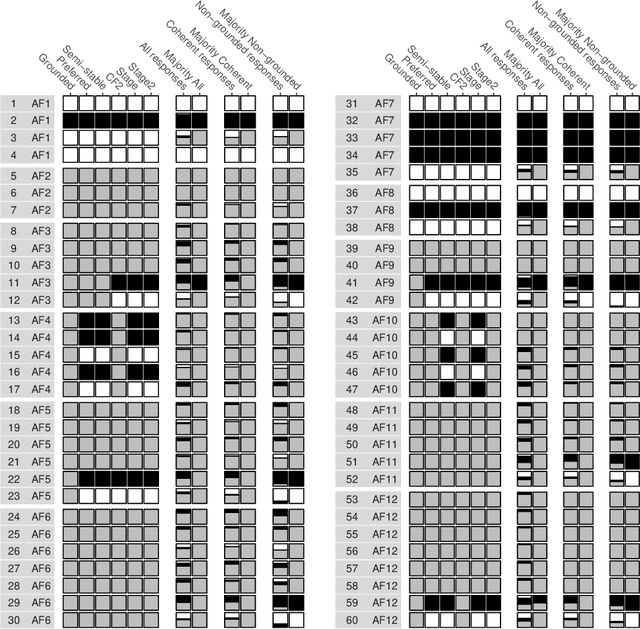Mathieu Guillaume
Technical report of "Empirical Study on Human Evaluation of Complex Argumentation Frameworks"
Feb 27, 2019

Abstract:In abstract argumentation, multiple argumentation semantics have been proposed that allow to select sets of jointly acceptable arguments from a given argumentation framework, i.e. based only on the attack relation between arguments. The existence of multiple argumentation semantics raises the question which of these semantics predicts best how humans evaluate arguments. Previous empirical cognitive studies that have tested how humans evaluate sets of arguments depending on the attack relation between them have been limited to a small set of very simple argumentation frameworks, so that some semantics studied in the literature could not be meaningfully distinguished by these studies. In this paper we report on an empirical cognitive study that overcomes these limitations by taking into consideration twelve argumentation frameworks of three to eight arguments each. These argumentation frameworks were mostly more complex than the argumentation frameworks considered in previous studies. All twelve argumentation framework were systematically instantiated with natural language arguments based on a certain fictional scenario, and participants were shown both the natural language arguments and a graphical depiction of the attack relation between them. Our data shows that grounded and CF2 semantics were the best predictors of human argument evaluation. A detailed analysis revealed that part of the participants chose a cognitively simpler strategy that is predicted very well by grounded semantics, while another part of the participants chose a cognitively more demanding strategy that is mostly predicted well by CF2 semantics.
 Add to Chrome
Add to Chrome Add to Firefox
Add to Firefox Add to Edge
Add to Edge